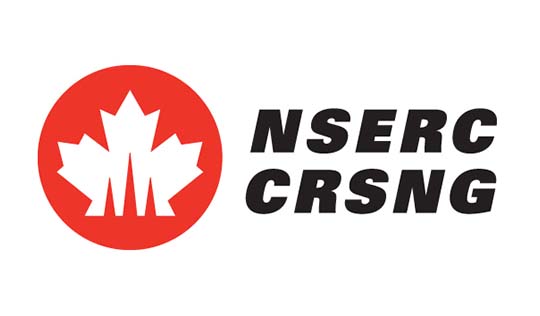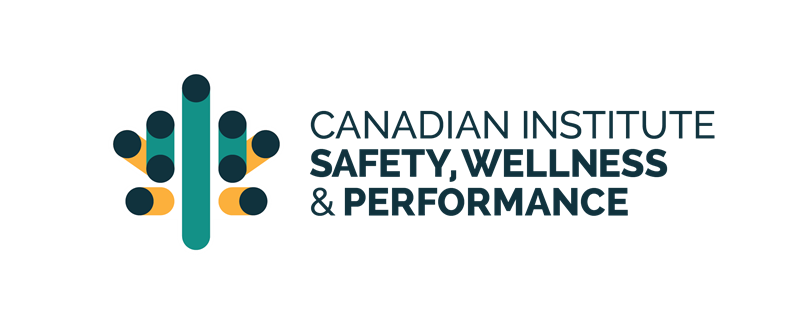Building capacity for productive and sustainable work
The Canadian Institute for Safety, Wellness & Performance (CISWP) is committed to building productive and sustainable workplaces through a collaborative and transdisciplinary approach. CISWP’s goal is to position Canada as a global leader in empowering business to adapt and thrive in a competitive economy and aims to improve the safety, wellness, and performance of the Canadian workforce through knowledge generation, research transfer, and workforce development. Working closely with stakeholders, the institute strives to conduct cutting-edge research and develop evidence-informed products, tools, and services to advance their capacity and address knowledge gaps.
The Ontario Skilled Trades Occupational Exposure and Demands Survey
If you work, or are a student or apprentice in the skilled trades, complete this survey to be entered into a draw to win one of 100 $50 Amazon gift cards.
Take the surveyResearch projects
CISWP's research program
CISWP adopts a transdisciplinary and collaborative approach to build capacity for productive and sustainable work. Our research program is organized into seven overarching and overlapping research themes:
Knowledge transfer and exchange (KTE) is vital for applying research knowledge into practice and decision-making. With immense resources invested into research, the knowledge generated should be readily accessible, available and applicable to knowledge users to use in practice, planning and policy-making. Through ongoing collaboration with stakeholders in all stages of our applied research, including conceptualization, development, execution and reporting, our KTE strategies fulfill the identified needs of knowledge users.
Our research focuses on the:
- co-creation of (general and industry-specific) evidence-informed standards, guidelines, practices, tools, products, and technologies; and
- integration of research knowledge into course curricula.
CISWP collaborates with stakeholders including employers, workers, not-for-profits, labour/unions, academics, service providers, policy makers and practitioners to reduce the risk of Musculoskeletal Disorders (MSD). MSD are injuries that affect muscles, ligaments, tendons and nerves caused by exposure to known ergonomic hazards including forceful exertions, repetitive motion, awkward posture and vibration.
In Ontario, MSD in the form of sprains and strains account for 44 per cent of all lost-time claims (WSIB, 2017). CISWP's research aims to reduce the burden of MSD by:
- understanding the aetiology and pathophysiological mechanisms of MSD;
- developing effective exposure measurement and risk assessment tools and improving surveillance systems;
- investigating exposure-response relationships including both physical and psychosocial factors on musculoskeletal health; and
- developing and evaluating interventions and risk mitigation strategies to prevent MSD among all business sizes and industry sectors.
Mental health is a state of well-being, where the individual can manage the normal stresses of life, work productively and fruitfully, and reach her/his potential (MHCC, 2016). Effective workplace strategies for mental health and wellness are critical for productive and sustainable work, and for the prevention and management of mental illness.
Each year, mental illness directly and indirectly costs the Canadian economy at least $50 billion, of which $42.3 billion is spent on health and service care, and $6.4 billion is unrealized due to presenteeism, absenteeism, and labor force exit (MHCC, 2016). These losses in productivity can be reduced by as much as 30 per cent by improving workplace mental health and reducing mental illness (NICE, 2009).
CISWP collaborates with stakeholders to:
- understand the social and cultural work environments across industries; and
- develop workplace strategies for the prevention, early detection, intervention, and management of mental illness, and promote workers' well-being.
Organizations are responsible for providing safe working conditions and required to implement strategies to effectively prevent workplace injuries. If these activities are performed within some organizational-level framework, it may be considered a "management system."
Often, health, safety and workplace injury prevention is approached as individual siloed programs, which is not sustainable or effective. It also results in additional human and financial costs and makes isolated programs vulnerable to financial downturns.
Integrating health, safety and workplace injury prevention activities into an organization's overall management system including, but not limited to, the Quality Management System, and avoiding "silos" is highly desirable. This results in better recognition of health and safety issues by stakeholders within organizations, enhances organizational success and overall organizational performance.
CISWP collaborates with stakeholders in conducting cutting-edge research and developing evidence-informed practices to integrate health and safety, and injury and disability prevention into organizational management systems. Other research activities focus on:
- developing innovative strategies to measure organizational success by defining the relationships and metrics of productivity, performance, quality and sustainability;
- identifying and minimizing organizational barriers to success for productive and sustainable work; and
- constructing and refining macro-ergonomic theories to optimize organizational excellence.
Recent statistics suggest that an estimated 20 per cent of Canadians aged 15 and older have one or more disabilities. This limits the daily activity and participation of over 6.2 million Canadians in our workforce.
CISWP addresses this important issue by supporting stakeholders to comply with federal and provincial legislative requirements including Canada's obligations under the United Nation's Convention on the Rights of Persons with Disabilities.
Our collaborative efforts with key stakeholders aim to identify key challenges, solutions and opportunities to adopt advanced work disability prevention and wellness management systems that consider supply chain management issues, diverse legal and cultural contexts, and global competitiveness.
These efforts will inform the development of Canadian and International Standards for Work Disability Prevention Management Systems and other related best practices including, but not limited to, evidence-informed practices in work accommodation and return-to-work. In addition, CISWP's goal is to identify and evaluate technologies, equipment, products, tools and services that promote engagement and productivity for different abilities in diverse sectors and occupations.
The nature of work has changed and the new form of employment is becoming more flexible and uncertain. It is moving online through extensive development of technology and is becoming borderless.
It is rapidly evolving due to the introduction of robotics, AI technologies and smart machines. Concurrently, the Canadian workforce is aging and becoming more diverse in terms of cultural/ethnic origin, abilities and skill sets.
CISWP conducts research to explore how Canadian employers can best adapt to these changing conditions while ensuring an inclusive, productive and sustainable workforce.
Our research focuses on:
- addressing the needs of micro and small businesses in preventing workplace injuries and enhancing performance and productivity;
- addressing broader issues including precarious work, flexible work, and diversity and inclusion by identifying evidence-informed and effective practices. We aim to understand the generalizability, sustainability, and scalability of practices to implement into different contexts, occupations and sectors; and
- conducting collaborative research to develop and evaluate multi-stakeholder strategies to capitalize on the skills, expertise and knowledge of the ageing workforce, and support a healthy work-to-retirement transition.
Universal design is a concept of designing and promoting products, communications and environments to accommodate human diversity; this includes a broad spectrum of abilities regardless of age, gender, ability or life status.
There are seven principles of universal design:
- equitable use,
- flexibility in use,
- simple and intuitive use,
- perceptible information,
- tolerance for error,
- low physical effort, and
- size and space for approach and use
Using these principles, CISWP is committed to advocating and implementing strategies and solutions consistent with universal design. We will adopt a user-centred design approach where we focus on the needs of the user throughout the iterative product life cycle.
Our research focuses on:
- constructing physical anthropometric databases across different sectors;
- examining cross-national relationships;
- developing design standards and guidelines; and
Strategic objectives (2019-2025)
The Canadian Institute for Safety, Wellness & Performance:
- Conducts innovative transdisciplinary research that addresses knowledge gaps and priorities;
- Develops evidence-informed products, guidelines, resources, and technologies;
- Contributes to the development of Canadian and international standards;
- Develops and implements strategies for uptake of evidence informed practices by organizations across all sectors of the
economy; - Provides state-of-the-art education and training for the next generation of business leaders and practitioners; and
- Provides national and international leadership in the prevention and management of occupational injuries and
disabilities.
Our team
Funders
Contact

96 Grand Avenue South
Cambridge, Ontario N1S 2L9, Canada












